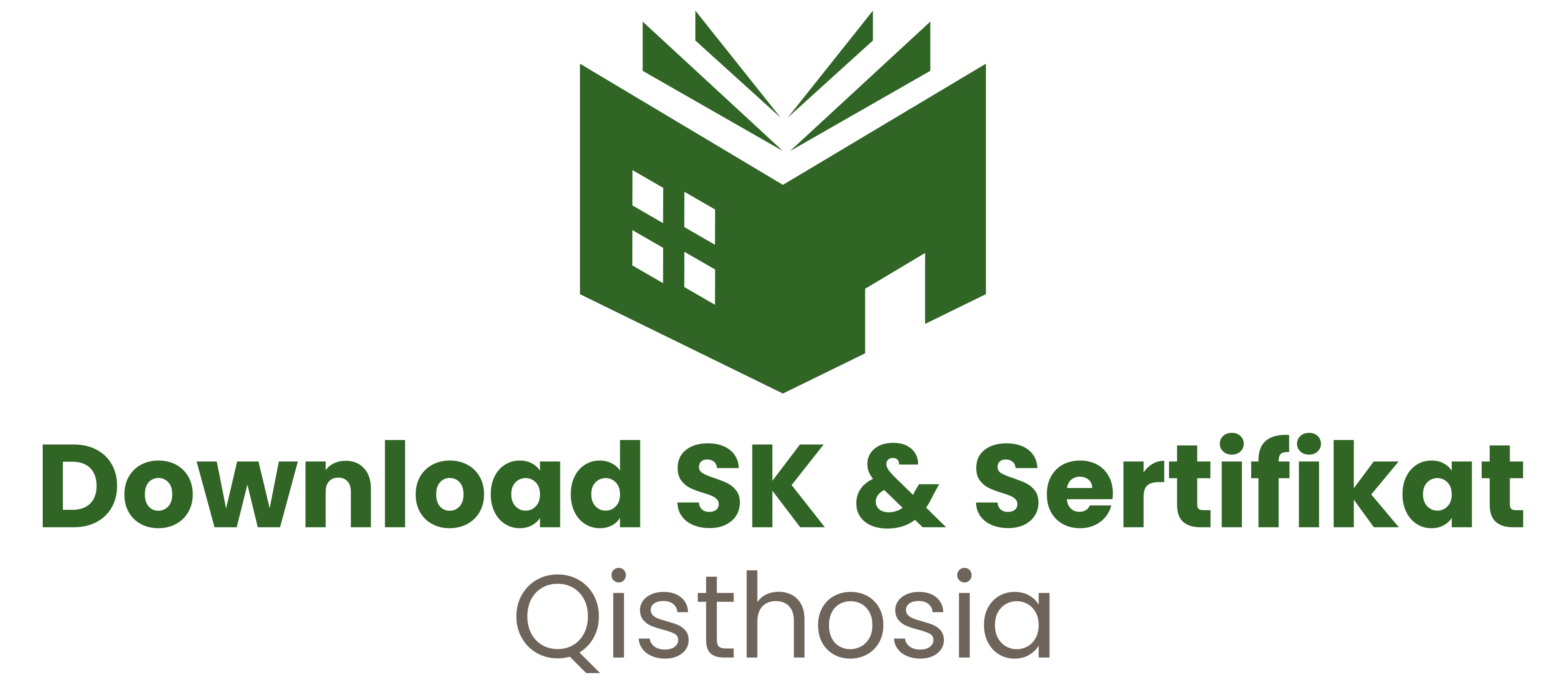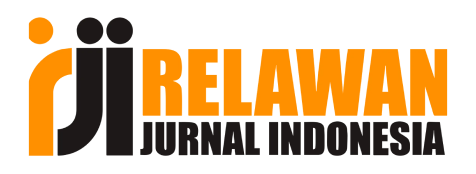Zakat as a Tax Reduction in the Framework of Realizing Indonesia as a Welfare State
Zakat sebagai Pengurangan Pajak dalam Kerangka Mewujudkan Indonesia sebagai Negara yang Sejahtera
DOI:
https://doi.org/10.46870/jhki.v5i2.1136Keywords:
Zakat, Tax Reduction, Welfare StateAbstract
Indonesia, as a country with the largest Muslim population, has significant potential in integrating zakat as a complementary social welfare instrument to national tax policy. This article aims to disclose the implementation of zakat as a tax deduction in leading Indonesia to be a welfare state. This study uses a normative legal approach with a conceptual method to explore the potential for integrating zakat as an income tax deduction, in order to achieving a more equitable and inclusive distribution of welfare. The data used is secondary data in the form of documents, both those included in the category of primary legal materials such as regulations or secondary legal materials such as books and journals. The main findings of the study indicate that the concept of a welfare state in general seeks to realize public welfare through equitable distribution and public policies based on the principle of benefit for all citizens. and recognizing zakat as an income tax deduction can improve social justice for Muslims and strengthen national fiscal independence through direct optimization of welfare distribution. This approach is expected to not only increase active community participation in state policies, but also accelerate poverty alleviation and reduce the country's dependence on external financing. Thus, this study offers a synergistic model between zakat and taxes that has the potential to create a sustainable and inclusive welfare system for all levels of society.
References
Abdullah, Muhammad, and Abdul Quddus Suhaib. “The Impact of Zakat on Social Life of Muslim Society.” Pakistan Journal of Islamic Research 8 (2011): 85–91.
Abdussalam, Izzuddin. Qawaid Al-Ahkam Li Masalih Al-Anam. Juz I. Kairo: Maktabah al-Kulliyat al-Azhariyah, 1994.
Ahmad, Raja Adzrin Raja, Ahmad Marzuki Amiruddin Othman, and Muhammad Sufiyudin Salleh. “Assessing the Satisfaction Level of Zakat Recipients Towards Zakat Management.” Procedia Economics and Finance 31 (2015): 140–51. https://doi.org/10.1016/S2212-5671(15)01141-7.
Al-Syatibi, Abu Ishak. Al-Muwafaqat Fi Ushul Al-Syari’ah. Mesir: Dar Al-Fikri Al-Arabi, 1958.
Alim, Mohammad Nizarul. “Utilization and Accounting of Zakat for Productive Purposes in Indonesia: A Review.” Procedia - Social and Behavioral Sciences 211 (November 2015): 232–36. https://doi.org/10.1016/j.sbspro.2015.11.028.
Anusantari, Inama. “KONSEP KEMASLAHATAN MAQĀṢĪḌ SYARĪAH IBNU ‘ASHUR TERHADAP PERMASALAHAN DI ERA MILENIAL: Polemik Kebijakan Lockdown Dan PSBB Pemerintah Indonesia Dalam Menangani Pandemi Covid-19.” Al-Maslahah : Jurnal Ilmu Syariah 17, no. 2 (December 2021): 189–213. https://doi.org/10.24260/al-maslahah.v17i2.1936.
Arif Sofiyan Berlianto, and Taun. “IMPLEMENTASI HUKUM PAJAK DAN PEMUNGUTAN PAJAK BAGI KESEJAHTERAAN SOSIAL RAKYAT INDONESIA.” The Juris 6, no. 2 (December 13, 2022): 415–20. https://doi.org/10.56301/juris.v6i2.610.
BRIGGS, ASA. “The Welfare State in Historical Perspective.” European Journal of Sociology 2, no. 2 (October 26, 1961): 221–58. http://www.jstor.org/stable/23987939.
Darvina, Darvina, Safrudin Halimy Kamaluddin, and Muhammad Ridho Nur. “Zakat and Taxes in Islamic Overview: In Terms of Benefit.” Kawanua International Journal of Multicultural Studies 1, no. 2 (December 31, 2020): 66–73. https://doi.org/10.30984/kijms.v1i2.5.
Dimyati, Khudzaifah, Haedar Nashir, Elviandri Elviandri, Absori Absori, Kelik Wardiono, and Arief Budiono. “Indonesia as a Legal Welfare State: A Prophetic-Transcendental Basis.” Heliyon 7, no. 8 (August 2021): e07865. https://doi.org/10.1016/j.heliyon.2021.e07865.
Dimyati, Khudzaifah, and Kelik Wardiono. “Metode Penelitian Hukum.” Surakarta: Fakultas Hukum Universitas Muhammadiyah Surakarta, 2004.
Edi, Suharto. “Peta Dan Dinamika Welfare State Di Beberapa Negara : Pelajaran Apa Yang Bisa Dipetik Untuk Membangun Indonesia?” Yogyakarta: Universitas Gakah Mada, 2006.
Efendi, Jonaedi, and Johnny Ibrahim. Metode Penelitian Hukum Normatif Dan Empiris. Depok: Prenada Media, 2018.
Elviandari, Elviandari, Farkhani Farkhani, Khuzaifah Dimyati, and Absori Absori. “The Formulation of Welfare State: The Perspective of Maqāṣid Al-Sharī‘Ah.” Indonesian Journal of Islam and Muslim Societies 8, no. 1 (July 2018): 117. https://doi.org/10.18326/ijims.v8i1.117-146.
ELVIANDRI, E. “QUO VADIS NEGARA KESEJAHTERAAN: MENEGUHKAN IDEOLOGI WELFARE STATE NEGARA HUKUM KESEJAHTERAAN INDONESIA.” Mimbar Hukum - Fakultas Hukum Universitas Gadjah Mada 31, no. 2 (June 3, 2019): 252. https://doi.org/10.22146/jmh.32986.
Fadhilah. “Refleksi Terhadap Makna Keadilan Sebagai Fairness Menurut John Rawls Dalam Perspektif Keindonesiaan.” KYBERNAN Jurnal Ilmiah Ilmu Pemerintahan 3, no. 1 (2012): 26.
Firdaus, Muhammad, Irfan Beik, Tony Irawan, and Bambang Juanda. Economic Estimation and Determinations of Zakat Potential in Indonesia, 2012.
Garland, David. The Welfare State: A Very Short Introduction. Very Short Introductions. Oxford University Press, 2016.
Hadiyono, Venatius. “Indonesia Dalam Menjawab Konsep Negara Welfare State Dan Tatangannya.” JURNAL HUKUM, POLITIK DAN KEKUASAAN 1, no. 1 (August 13, 2020): 23. https://doi.org/10.24167/jhpk.v1i1.2672.
Iskandar, Iskandar. “Zakat Sebagai Pengurang Kewajiban Pembayaran Pajak : Adilkah Bagi Umat Islam ?” Ius Civile: Refleksi Penegakan Hukum Dan Keadilan 3, no. 1 (December 4, 2019). https://doi.org/10.35308/jic.v3i1.1434.
Kakar, Sadam Hussain, Muhammad Hasbi Zaenal, and Fitri Yani Jalil. “Islamic Social Welfare and the Role of Zakat and Islamic Charity in the Family-Resilience: The Theoritical Review.” In 6th Indonesian Conference of Zakat (ICONZ), 1–17, 2022.
Kusumawati, Arum Pratiwi, and Nur Sayidah. “Penerapan Kebijakan Pembayaran Zakat Sebagai Pengurang Pajak (Studi Di SD Islam Maryam Surabaya).” JCA (Jurnal Cendekia Akuntansi) 5, no. 1 (June 21, 2024): 1. https://doi.org/10.32503/akuntansi.v5i1.5182.
Marilang, Marilang. “Ideologi Welfare State Konstitusi: Hak Menguasai Negara Atas Barang Tambang.” Jurnal Konstitusi 9, no. 2 (May 20, 2016): 259. https://doi.org/10.31078/jk922.
Nasional, Badan Amil Zakat. “Laporan Pengelolaan Zakat Nasional.” Jakarta, 2023.
Nazri, Farah Aida Ahmad, Rashidah Abd Rahman, and Normah Omar. “Zakat and Poverty Alleviation : Roles of Zakat Institutions in Malaysia.” International Journal of Arts and Commerce 1, no. 7 (2012): 61–72.
Nisa, Farhatun, Agus Puji Priyono, and Anggraeni Dwijayanti. “Peran Zakat Dalam Kebijakan Pengurangan Pajak: Evaluasi Implementasi Dan Tantangan Di Lembaga Amil Zakat.” Jurnal Penelitian Inovatif 4, no. 3 (August 22, 2024): 1787–96. https://doi.org/10.54082/jupin.680.
Nurazzah, Fikriz Ayu, Muhammad Alfa Niam, and Eni Srihastuti. “Penerapan Tax Planning Melalui Zakat Sebagai Pengurang Pajak Penghasilan Terutang (Studi Kasus Pada PR. Semanggimas Agung Kediri).” PARETO: Jurnal Riset … 8, no. 1 (2023): 14–223. https://www.jurnal.uniraya.ac.id/index.php/pareto/article/view/837.
Ries Ahmed, Essia, Ku Halim Bin Aiffin, Tariq Tawfeeq Yousif Alabdullah, and Ahmed Zuqebah. “Zakat and Accounting Valuation Model.” Journal of Reviews on Global Economics 5 (April 15, 2016): 16–24. https://doi.org/10.6000/1929-7092.2016.05.02.
Rokhmad, Abu. “Institutions and Contributions to Islamic Law in Indonesia’s Legal System.” Walisongo Law Review (Walrev) 3, no. 1 (June 23, 2021): 21–44. https://doi.org/10.21580/walrev.2021.3.1.7282.
Rusnan, Rusnan. “Welfare State Concept of Rule of Law in Related To Freiss Ermerssen.” Jurnal IUS Kajian Hukum Dan Keadilan 2, no. 1 (2014): 1–10. https://doi.org/https://doi.org/10.12345/ius.v2i4.153.
Sejati, Sekar Ingtyas Garnis Waninghyun, M Junaidi, and Mutimatun Niami. “Implementation of Law No. 23 of 2011 Concerning Zakat Management in LAZISMU and LAZISNU Surakarta.” In Proceeding International Conference Restructuring and Transforming Law, 2:49–55, 2023. https://proceedings.ums.ac.id/index.php/icrtlaw/article/view/4092/3743.
Susetio, Wasis. “Konsep Welfare State Dalam Amandemen UUD 1945: Implementasinya Dalam Peraturan Perundang-Undangan (Beberapa Tinjauan Dari Putusan MKRI).” Lex Jurnalica 4, no. 2 (2007): 56–69. https://doi.org/https://doi.org/10.47007/lj.v4i2.259.
Tabrani, Mukti. “Maqâshid Revitalization in Global Era: Istidlâl Study from Text to Context.” AL-IHKAM: Jurnal Hukum & Pranata Sosial 13, no. 2 (December 2018): 310–33. https://doi.org/10.19105/al-lhkam.v13i2.1814.
Wahab, Norazlina Abd., and Abdul Rahim Abdul Rahman. “A Framework to Analyse the Efficiency and Governance of Zakat Institutions.” Journal of Islamic Accounting and Business Research 2, no. 1 (April 19, 2011): 43–62. https://doi.org/10.1108/17590811111129508.
Yaqin, Ainol. “Yūsuf Al-Qarḍāwī’s Istinbāṭ Method and Its Implementation in the Moderation of Islamic Law.” Al-Ahkam 31, no. 1 (April 29, 2021): 109–40. https://doi.org/10.21580/ahkam.2021.31.1.7075.
Zuhdi, Syaifuddin. “Transcendental Justice Law: The Relation of Law and Justice.” Journal of Transcendental Law 3, no. 1 (October 14, 2021): 30–49. https://doi.org/10.23917/jtl.v3i1.15196.
Downloads
Published
How to Cite
Issue
Section
License
Copyright (c) 2024 QISTHOSIA : Jurnal Syariah dan Hukum

This work is licensed under a Creative Commons Attribution-NonCommercial-ShareAlike 4.0 International License.








 Indonesia
Indonesia






